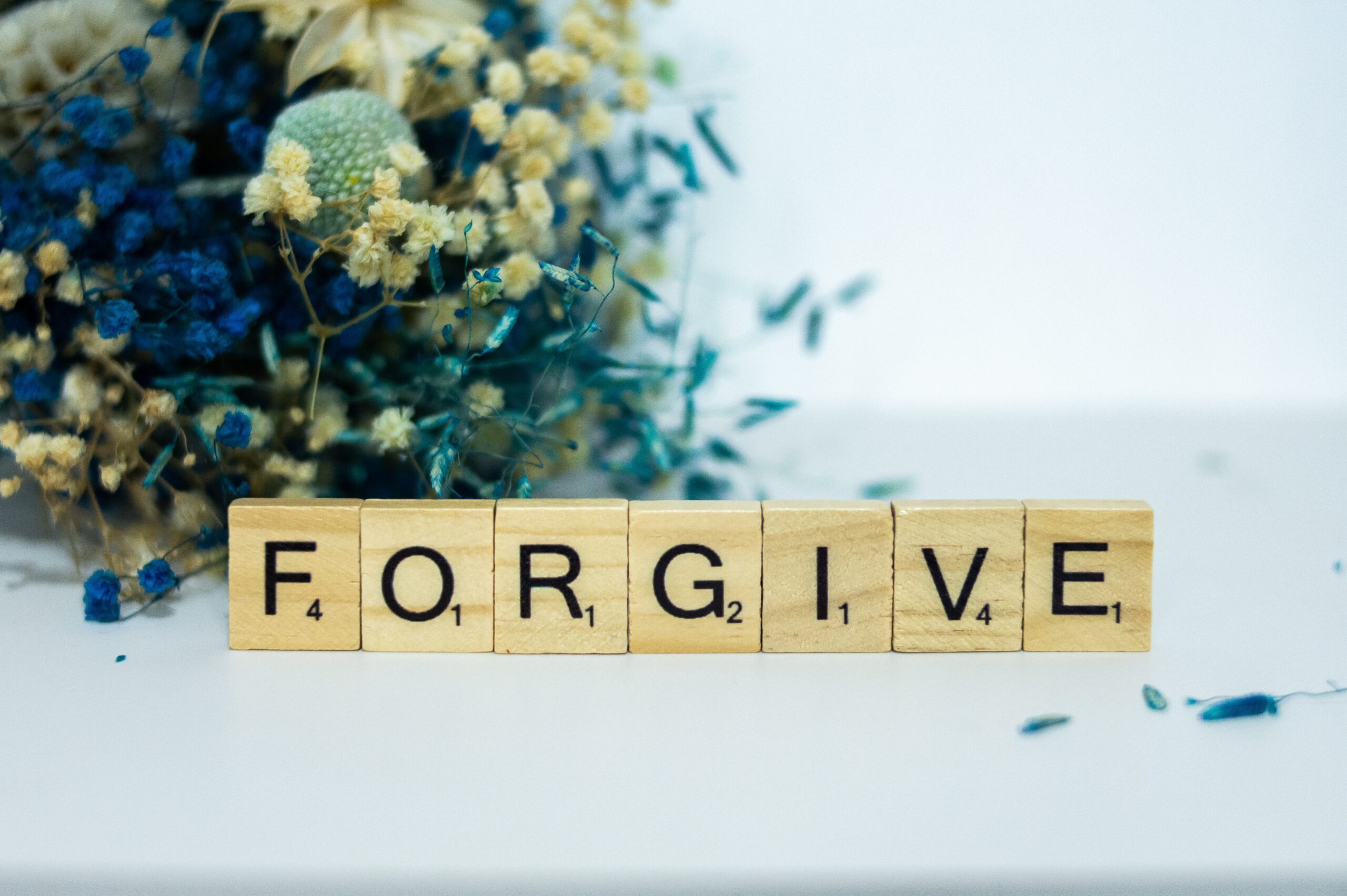JULIANNE ATKINSON |GUEST
Seventeen years ago, someone who I thought highly of hid behind a computer and lied to me. I did mental gymnastics to attribute their best intentions to the lie. It was like talking to a piece of wood. I didn’t know at the time the price I would pay for the lie and it took me much longer to accept that I was the one to have to pay it. My closest relationships, parts of my reputation, and even some hopes and dreams I had for my life were damaged. It felt impossible to come back from.
As image bearers, we have inside us a strong sense of both justice and mercy. It’s no accident that God makes it hard to let go of what we see as injustice. Our glorious God manages to uphold both justice and mercy perfectly. We are encouraged with verses not only asking us to forgive, but also requiring it (Matt. 18:21-35; Eph. 4:32). I love the tender words of Paul in Romans 12:19 “Beloved, never avenge yourselves, but leave it to the wrath of God, for it is written, ‘Vengeance is mine, I will repay, says the Lord.’” We could think of the quote “vengeance is mine” with a tight, angry fist or even with bitterness that we can’t take revenge ourselves, but the command is actually an invitation. God calls us as His beloved to let the tears flow, let our laments be heard in heaven, and let our Savior walk alongside us in our grief. We do so, knowing that God will tread the winepress of wrath and personally wipe every tear from our eyes. There is peace and humility in our finitude. He knows every offender’s true motives, generational sins and brokenness, background of trauma, and pain that leads hurt people to hurt people. He alone knows what justice demands in every circumstance.
Three Lessons in Forgiveness
This doesn’t make forgiveness easy. Here are three things I wish I had known about forgiveness from the start.
First, the road of healing is longer for some sins than others. Humans are all capable of grievous sin that leaves others to pick up the pieces of their lives in the wake of such sin. Some offenders may never know the devastation they leave behind, while others may never repent or engage with the destruction they know occurred. While there are levels of reconciliation that can be sought on our own or with the assistance of church leadership, there are times when we are simply left responsible for making the choice to forgive every morning and having patience within the journey to heal. Our heart doesn’t have to immediately be in the tender place we want it, but we have to make the choice to forgive and continue doing so. Our hearts follow our heads.
Second, forgiving someone means choosing to pay the price in full. Have you ever told someone you forgive them but continued to make them pay in your heart or in your actions? When someone is forgiven, you never wield a sarcastic comment, use passive aggression, or act in a way that will cause them to suffer for anything they did. Not an iota of the payment falls on them. If you don’t do this, you’re still holding them accountable and there’s no forgiveness. This doesn’t mean that the legal system can’t do its job. It also doesn’t mean there aren’t natural consequences the person may have to experience. What it does mean is that there is a humility in our posture that shines like the sun in a cancel-culture world. We love others enough to serve them in this payment. We know our limits in our knowledge and in our ability to carry out perfect justice and we yield to God to do justice on our behalf.
Finally, a bitter heart is poison. Bitterness is a slow death, but not to the offender. It kills the heart harboring unforgiveness. In fact, the offender will likely move on and never think of the offense again. One of my favorite books of all time is The Count of Monte Cristo. As Edmond Dantes is falsely imprisoned, his heart becomes hard as a rock both to those he loved and to God. He spends thirteen years plotting his escape and subsequent revenge. There is great satisfaction in seeing him acquire wealth beyond measure and using it to enact complex and calculated justice on those who wronged him. However, even the most fantastic revenge stories leave us knowing in our hearts that something is wrong when the hero of the story devolves into misery, sitting on his wealth and conquests, and is unable to forgive or have love in his heart in the end. This fictional account illustrates that there is no happy ending without forgiveness.
As we grow in our Christ likeness, we also grow in our ability to forgive. When we look at the contrast between Ephesians 4:31 and Ephesians 4:32, we see that the Spirit is able to work forgiveness in us as we grow in sanctification. “Let all bitterness and wrath and anger and clamor and slander be put away from you, along with all malice. Be kind to one another, tenderhearted, forgiving one another, as God in Christ forgave you.” Let these words be an encouragement that there is hope as we seek Christ and read His Word, for we are transformed from the inside out. God does not leave us in despair but carries His work on to completion (Phil. 1:6; 2 Cor. 3:18).
Before I began my road to forgiveness amidst the pain of injustice, I had been in fervent prayer for God to work humility in me. It’s easy to take James’ exhortation to count it all joy when you face various kinds of trials as a mockery of the pain you’re experiencing (James 1:2). The truth is that as we grow as imitators of Christ, we may also walk a similar path requiring us to endure the suffering and humiliation that He walked. This can be a silent road with little glory and often little acknowledgement. Yet the glory is God’s glory. He flips trials upside down so that while He grieves the injustice alongside us, He also redeems it to be used for good. Looking back on my own experiences with forgiveness, I can rejoice in how my character has changed. I no longer know who I would be without the suffering God used to change me. I rejoice that He has allowed me to walk alongside and enter the stories of others with compassion and empathy. What a joy and privilege it is to watch God bring wholeness and peace out of the brokenness of life lived in a fallen world.
Photo by Alex Shute on Unsplash

Julianne Atkinson
Julianne is a stay at home mom to two fun boys and former youth ministry staff at Redeemer Presbyterian Church in San Antonio. After attending Covenant College, she worked at several non-profit ministries and followed her husband of ten years around the country for work. He has finally ended up in San Antonio as a staff surgeon in the oral and maxillofacial surgical residency at Fort Sam Houston. They love backpacking and exploring God’s creation, board gaming, jigsaw puzzles, and their two fluffy cats they rescued in Philadelphia.

